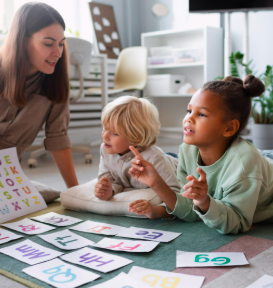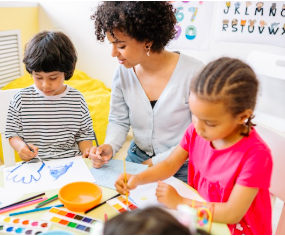Early childhood is a time of incredible brain growth and development. From birth to age five, children undergo rapid cognitive, emotional, and physical changes that lay the groundwork for future learning and well-being. Understanding the science behind early learning can help parents make informed decisions that support their child’s development from the very beginning.
The Brain’s Building Blocks Begin Early
In the first few years of life, a child’s brain forms more than a million neural connections every second. These connections are shaped by both genetics and the environment. Simple interactions like talking, singing, and playing with a child activate these neural pathways, strengthening the brain’s foundation for future skills such as problem-solving, self-control, and language.
The Role of Responsive Relationships
Science shows that strong, nurturing relationships with caregivers are essential to healthy brain development. When parents and caregivers consistently respond to a child’s needs, it creates a secure environment that promotes emotional stability and curiosity. This sense of security encourages young children to explore, take risks, and learn through play.
Why Early Experiences Matter
The quality of experiences in a child’s early years has lasting effects. Engaging in rich language interactions, reading books together, and encouraging imaginative play are all key activities that enhance brain development. Repetition of positive experiences helps strengthen the connections in the brain that support memory, attention, and learning.
Stress and Its Impact on Development
Not all stress is harmful, but prolonged exposure to high levels of stress—especially without supportive relationships—can hinder brain development. Positive stress, like starting preschool, helps build resilience. But toxic stress, such as ongoing neglect or household instability, can disrupt healthy brain architecture. Parents can buffer stress by providing a safe and loving environment.
The Importance of Play in Learning
Play is more than just fun—it’s how young children learn best. Through play, children practice language, develop motor skills, and learn to collaborate with others. Whether it’s building with blocks or pretending to cook in a toy kitchen, play encourages creativity and critical thinking.
What Parents Can Do
Parents don’t need expensive toys or formal instruction to promote early learning. Simple everyday moments—singing during bath time, describing things on a walk, or counting while setting the table—can have powerful learning benefits. Creating routines, offering choices, and encouraging curiosity all support a child’s growing brain.
Conclusion
Understanding the science of early learning helps parents appreciate how small actions today can lead to lifelong benefits. By nurturing secure relationships, offering enriching experiences, and supporting play-based exploration, parents can build a strong foundation that prepares their children for success in school and beyond.


